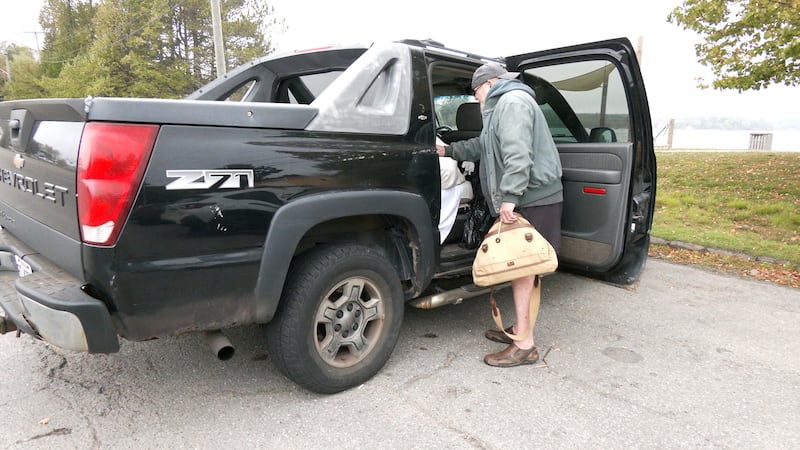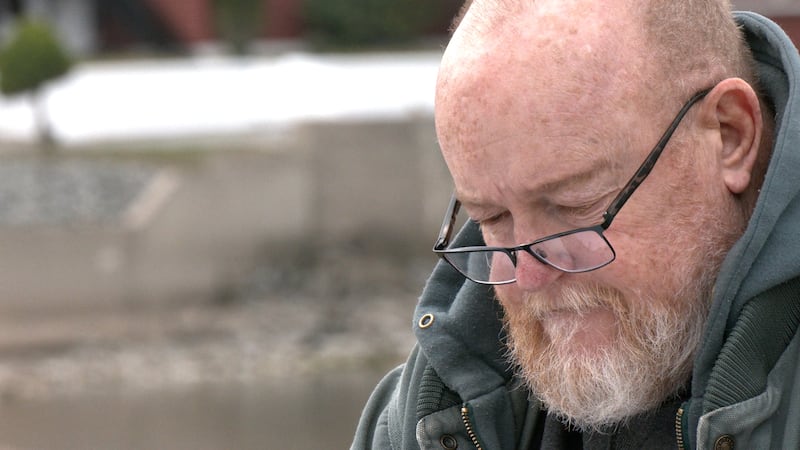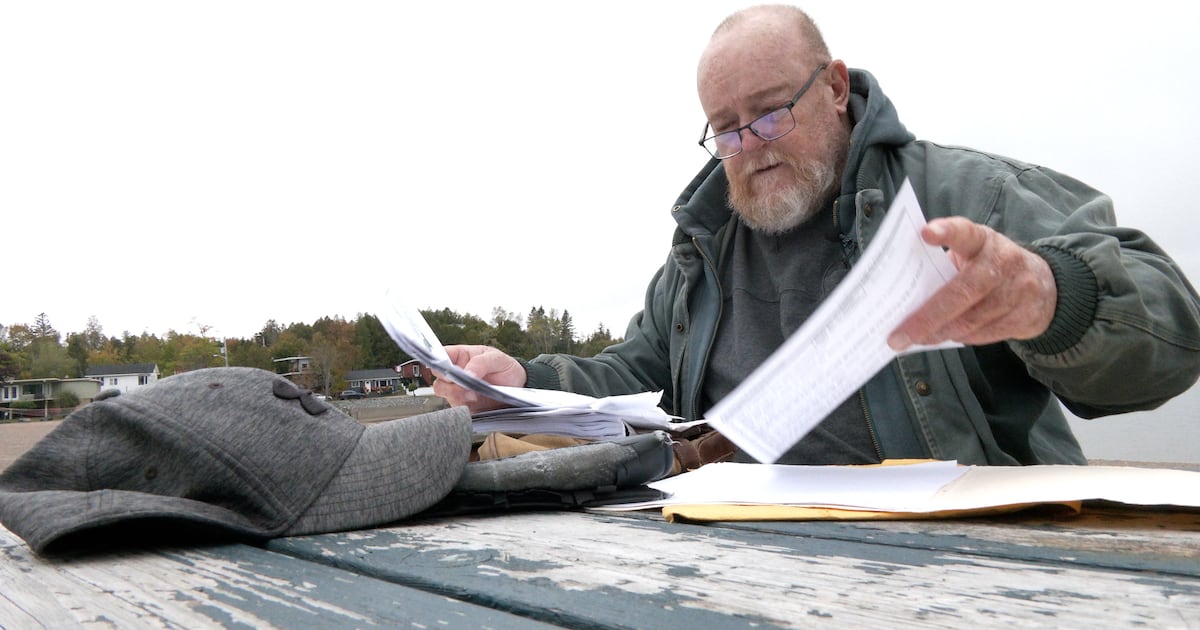To Terrence, McBride, who was born in Canada and adopted by an American family, was rejected from entering the U.S. six months ago. Sarah Plowman reports
Terrence McBride finds himself stuck.
He longs for his friends and family in Georgia and Texas, along with the job he was supposed to start at a golf course in Atlanta.
But the 63-year-old is recovering from a heart attack while living in a cramped rooming house in Saint John, N.B. — a city that’s unfamiliar. He says he feels emotionally and physically drained, just like his bank account.
His troubles began after he pulled up to the U.S. border in Calais, Maine on April 10. He told officials he’s an American citizen, but carries a Canadian passport.
“Here’s my name. Here’s everything,” he said, describing the interaction. “They look me up.”
McBride was born in Canada but adopted by American parents as a baby in the early ‘60s. Despite insisting he’s an American citizen, the adoption records and documents he showed at the border weren’t enough proof.
“I spent my whole life assuming I’m American,” he said. “A couple of times I’ve crossed the border and they’ve said, ‘Hey, just so you know, you might need some stuff the next time, but no big deal,” he said. “Suddenly, it’s a big deal.”
McBride said he was detained for about a day-and-a-half as officers questioned him and officers sorted through his files. He said he was treated well and released, but was told not to try to cross into the U.S. again until he secures either an American passport or citizenship number.
As McBride made calls to dig up the information needed while trying to hire a U.S. immigration lawyer, he had a heart attack. He eventually ended up in hospital in Saint John.
“I thought I was dying, I just thought it was stress. I laid there for two days on the bathroom floor,” he said.
 Terrence McBride Canada-U.S. border Terrence McBride has been forced to live in hotels, squalor and his own truck while trying to figure out how to get back into the U.S. (CTV News) ‘I want to go home’
Terrence McBride Canada-U.S. border Terrence McBride has been forced to live in hotels, squalor and his own truck while trying to figure out how to get back into the U.S. (CTV News) ‘I want to go home’
For nearly six months, McBride has lived in hotels, his pickup truck and now a rooming house he describes as squalor.
McBride, who loves dogs, had to give up his beagle because of his poor health. He says he’s desperate to return to his normal life.
“I want to go home,” he said, getting emotional. “They’re the people that make me feel valued enough, loved, appreciated and thought of. I want to go there, because I don’t have that. I don’t have that here.”
McBride tried to retain a lawyer in New York but didn’t have enough money to cover the cost. He’s started an online fundraising campaign to try to help his cause, but expects he’ll need thousands of dollars and so far has raised less than $400.
“What a great idea to offset the feeling of abandonment, loss, bewilderment of how alone I have felt through this whole experience,” he said.
Kelley Ortega, a U.S. immigration attorney at Jaime Barron in Washington State, said when McBride was adopted in the ‘60s, the process would’ve required his parents to make him a permanent resident — also known as a green card holder — then a separate process to request he become an American citizen.
“This information, even if it’s 60 years or so old, is contained within immigration files,” she said.
 Terrence McBride Canada-U.S. Terrence McBride has been stuck in Saint John, N.B., after being denied re-entry into the U.S. (CTV News)
Terrence McBride Canada-U.S. Terrence McBride has been stuck in Saint John, N.B., after being denied re-entry into the U.S. (CTV News)
“One of the worst violations of immigration law, unfortunately, which is why I think it took the turn that it did, is falsely claiming U.S. citizenship,” she added. “So the minute that he probably said that I am an American or I am a U.S. citizen, but he’s holding a Canadian passport, the officers are starting to figure out if that there’s any truth to that.”
Ortega said it’s up to the traveller to prove they are who they say they are, even if they’re an American citizen. But he believes there may be ways for McBride to get the information he needs to get a U.S. passport, noting he was a military service member with the U.S. navy and they may have information on file.
She suggested filing a Freedom of Information Act Request with U.S. immigration, saying she’s had files come back as quickly as 30 days, or as long as several months, but highlighted timelines could be contingent on the current government shutdown.
The attorney said travellers should expect increased enforcement and stricter application of the rules under the Trump administration.
For McBride, digging up all the paperwork means a lot of time and money.
“It’s just chiseling away in my heart and my heart’s breaking,” he said.
In a statement sent Friday afternoon, Hilton Beckham, the assistant commissioner of Customs and Border Protection, said individuals who remain outside the United States for more than one year must obtain a valid SB-1 visa from their nearest U.S. embassy or possess a U.S. re-entry permit to seek re-entry.
“Mr. McBride was permitted, as a matter of discretion, to voluntarily withdraw his application for admission and return to Canada. There is no impediment preventing him from re-applying for admission to the United States in the future, provided he complies with all relevant laws and procedures,” said Beckham.
Beckham says it’s a “privilege” to enter the U.S. with a visa, not a right.
“Under U.S. immigration law, all individuals seeking entry are considered aliens and deemed inadmissible until they demonstrate to a Customs and Border Protection officer at a U.S. Port of Entry that they are either U.S. citizens or admissible under applicable laws.”
With files from CTV News’ Kristen Yu

